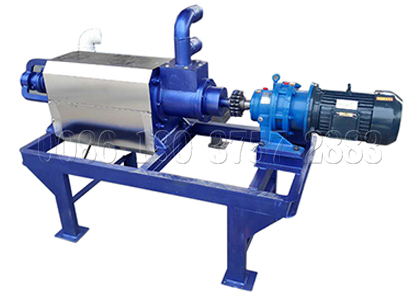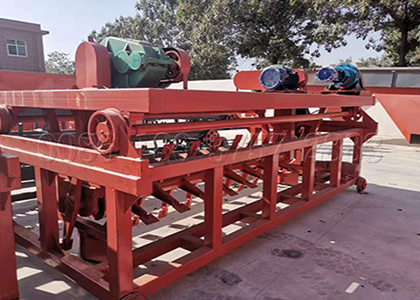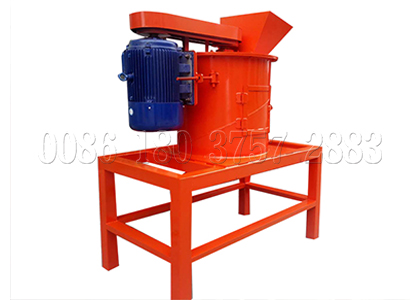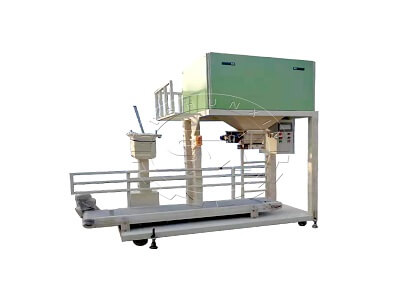As by-product of municipal sewage plant, sewage sludge contains plenty of organic waste, which is biodegradable. And the random discharge of it will cause serious environment pollution. Therefore, it is important for you to reasonably deal with sewage sludge. Because composting technology is an economical and effective method to achieve stabilization and innocuity of sewage sludge, composting method is widely used for disposing sludge. In the composting process, you need pay more attention to fermentation condition, equipment application and deep process of composted sludge. And we SEEC will provide detailed information about sludge composting.
What is sludge composting?
We often adopt aerobic composting to dispose sludge. The aerobic composting converts sludge into stable humus by microorganism activity. In the process, bacteria, fungus, actinomycetes and other microorganisms will decompose organic matter under specific environment. After composting, you can use the sludge to fertilize and improve the soil.
Because of high water content, you should dehydrate sludge at first. For this purpose, you can adopt SEEC solid-liquid separator machine, or you can add some animal manure and straw to adjust water content. And then you can pile up raw materials with windrow type in fermentation groove or on the ground. In this process, you may need compost turner to turn compost pile so as to adjust fermentation environment. When the fermentation finishes, the sludge will become useful organic fertilizer. By composting, you not only can convert sludge into useful organic fertilizer, but also reduces its pollution on environment.

Why should you dispose sludge by composting?
There are many methods to deal with sludge, including drying and burning, sanitary landfill and composting. Compared with the first two methods, the sludge composting belongs to recycling of organic waste, which greatly improve sludge’s utilization. And you can know about the advantage of sludge composting from the following aspects:
- After composting, the odor of sludge will be completely gone.
- On the other hand, the high temperature in fermentation will kill most pathogenic bacteria and parasites, so as to achieve innocent treatment.
- Microorganism will decompose organic matter in sludge, and available nutrients will produce, which is beneficial for plant uptake.
- The humus produced through composting can improve soil condition, and can be used as high-quality fertilizer for farmland.
What factors need you to pay more attention during sludge composting?
In order to produce high-quality organic fertilizer from sludge, you should pay more attention to the important factors in fermentation, including water content, temperature, heavy metal control and nitrogen preserving.
- Water content is a critical parameter, which causes direct influences on microbial activity. Some researches show that the most suitable water content for microorganism activity is 50% to 70%. However, the water content of sewage sludge is far beyond this standard. Therefore, you need to add some ingredients to adjust water content and air permeability of compost pile. And the common ingredients are sawdust, leaves, straw, rice straw, animal manure and so on.
- Temperature is the core factors for fermentation period and the quality of final products. When the temperature reaches 60℃ to 70℃, some harmful pathogenic bacteria and parasite (eggs) will be killed. If the temperature cannot reach standard, the sludge will not fully ferment and the quality of final products will decrease.

3. As we all know, municipal sludge is rich in heavy metal. If the heavy metal continuously enters the soil, it will do harm to plants and environment. Therefore, you should passivate metal activity in the composting process. According to some studies, you can add fly ash, powdered rock phosphate or kaolinite, which can effectively reduce heavy metal content and improve quality of compost product.
4. Nitrogen preserving technology: The nitrogen content in sludge is an important parameter to evaluate agricultural of sludge. In general, 20% to 70% nitrogen element will lose in the composting process. And this phenomenon will reduce the effect of composting products. In order to avoid the loss of nitrogen element, you can add some materials with lignocellulose.
How to further process fermented sludge with SEEC equipment?
After full fermentation, sludge becomes organic fertilizer. For the convenience of storage and transport, you can make it into pellets and then package it. The further process includes crushing, mixing, granulating, screening and packaging treatment.
Crushing and mixing process: The two steps is prepared for granulation. SEEC new type vertical crusher and semi-wet material crusher is suitable for crushing larger sludge caking. Horizontal mixer and disc mixer are available for evenly blending raw materials.

Granulating and screening process: Granulating process is the key step of organic fertilizer making, where powdery sludge converts into pellets by the granulator. Wet granulation is the working principle of our organic fertilizer granulating machines, including disc granulator, new type organic fertilizer granulator and rotary drum churning granulator. After granulation, the organic fertilizer pellets will pass drying and cooling machines, and then enter screening machine. In the screening machine, unqualified pellets will be selected out and sent back to crashing machine for secondary granulation. In this process, you can choose rotary screen machine and vibrating screen machine for select out pellets with unqualified particle size.
Packaging process: Meanwhile, conveying equipment will transport pellets with qualified particle size to packaging machine. Our single (double) bucket automatic packing scale will weigh and bag the organic fertilizer pellets. In addition, you can set double bucket automatic packing scale to produce two types of packing quantity at the same time, which will improve working efficiency and meet different requirements. In addition, there are some matched auxiliary machines for you to choose, such as sewing machine, folding machine, infrared trimming machine and automatic counting machine.

Where can organic fertilizer made from sludge be used?
Even though most harmful components have been disposed in composting process, there are still some unstable factors, which may influence crops. Take this factor into account, organic fertilizer made from sewage sludge is generally used to plants that are not sensitive to heavy metal. For those organic fertilizer made from sludge with high metal content, it usually used for gardens and landscaping.